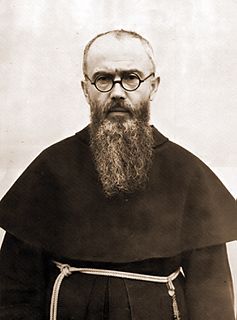A Quote by N. T. Wright
When we learn to read the story of Jesus and see it as the story of the love of God, doing for us what we could not do for ourselves--that insight produces, again and again, a sense of astonished gratitude which is very near the heart of authentic Christian experience.
Related Quotes
It's only a story, you say. So it is, and the rest of life with it - creation story, love story, horror, crime, the strange story of you and I. The alphabet of my DNA shapes certain words, but the story is not told. I have to tell it myself. What is it that I have to tell myself again and again? That there is always a new beginning, a different end. I can change the story. I am the story. Begin.
The liturgical year is the year that sets out to attune the life of the Christian to the life of Jesus, the Christ. It proposes, year after year, to immerse us over and over again into the sense and substance of the Christian life until, eventually we become what we say we are - followers of Jesus all the way to the heart of God
What I often do in my work is to take a great story, such as the Odyssey, the search for the Grail, the story of Jesus, or the story of the great peacemaker who helped create the Iroquois Confederacy in the 15th century. I then use these tales as templates upon which to weave psychological and spiritual exercises which allow us to open ourselves up to the larger venue of a story.
We are trying to communicate that which lies in our deepest heart, which has no words, which can only be hinted at through the means of a story. And somehow, miraculously, a story that comes from deep in my heart calls from a reader that which is deepest in his or her heart, and together from our secret hidden selves we create a story that neither of us could have told alone.
I've often made revisions at that stage that turned out to be mistakes because I wasn't really in the rhythm of the story anymore. I see a little bit of writing that doesn't seem to be doing as much work as it should be doing, and right at the end, I will sort of rev it up. But when I finally read the story again, it seems a bit obtrusive.
I wrote The Jesus Storybook Bible because I wanted children to know the Bible isn't mainly about you and what you're supposed to be doing. It's about God and what he has done. It's the story of how God loves his children and comes to rescue them. It's a Love Story. It's an Adventure Story. And at the center of the story is a baby - the child upon whom everything would depend. And every single story in the Bible whispers his name.
God reminds us again and again that things between He and us are forever fixed. They are the rendezvous points where God declares to us concretely that the debt has been paid, the ledger put away, and that everything we need, in Christ we already possess. This re-convincing produces humility, because we realize that our needs are fulfilled. We don’t have to worry about ourselves anymore. This in turn frees us to stop looking out for what we think we need and liberates us to love our neighbor by looking out for what they need.
Each of us is our own story, but none of us is only our own story. The arc of my own personal story is inexplicably and intrinsically linked to the story of my parents and the story of my neighbor and the story of the kid that I met one time. All of us are linked in ways that we don't always see. We are never simply ourselves.
Let us give ourselves to the Immaculata [Mary]. Let her prepare us, let her receive Him [Jesus] in Holy Communion. This is the manner most perfect and pleasing to the Lord Jesus and brings great fruit to us." Because "the Immaculata knows the secret, how to unite ourselves totally with the heart of the Lord Jesus... We do not limit ourselves in love. We want to love the Lord Jesus with her heart, or rather that she would love the Lord with our heart.
As Paul says, even though we as human beings know God, we refuse to acknowledge him. That's what Peter did. He refused even to "know" Jesus! Peter's failure reflects all our failure. It forces us to face the reality about ourselves. But the point of the story is that Jesus foretold this - he knew it was coming. And Jesus forgave Peter, when Peter confessed his love for Jesus. So the story illustrates both the horrible nature of sin, and the amazing reality of grace. That's essential to the whole meaning of the gospel.






































